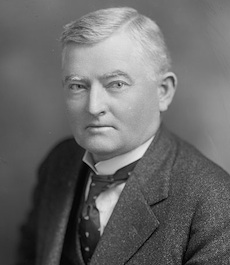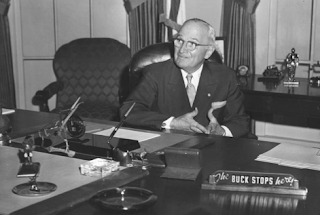Continuing
yesterday’s discussion of what poker is -- or, rather, those elements that are essential to the game (cards, money, and bluffing) -- today I want to talk about some of the game’s more interesting contradictions. What follows is a discussion of six such “paradoxes of poker,” all of which add to the game’s complexity and, in some cases, popularity.
Obvious to most is the competitive nature of poker, a “zero sum” game in which no one can win without someone else losing. A rake being taken from a cash game or tournament fees actually make it not quite “zero sum,” but the point still holds -- there are no winners in poker without there also being losers.
That money is being won and lost adds further incentive to players’ desire to best one another, with even the smallest-stakes games sometimes encouraging antagonism given the fundamental need for each player to pursue his or her self-interest. Yet cooperation among adversaries is also needed for game play, and while many rules are unalterable, mutual agreement often must be reached regarding various particulars in order for games to proceed.
There’s one paradox of poker, then -- it’s a game that at once promotes self-interest and community. (For more on that one, see an earlier post titled “Poker, the Antisocial Social Game.”)
Furthermore, poker is often heralded for its promotion of egalitarian ideals -- “a truly democratic activity,” as Al Alvarez once described the game. “Race, color, creed, what you look like, where you come from, and what you do for a living are of no interest at all,” he argues in Poker: Bets, Bluffs, and Bad Beats. “A little green man from a distant galaxy could sit down and play without anyone blinking, provided he had the necessary amount of chips in front of him and anted up on time.”
Charles A. Murray’s New York Times op-ed from about three years ago titled “Poker Is America” (discussed here) anecdotally reinforces such a position, noting how the “occupational and income mix” and variety of races and ethnicities he routinely encounters while playing suggests “a poker table is America the way television commercials portray it but it seldom is.”
Even if the political scientist’s account of never having “experienced a moment of tension arising from anything involving race, class, or gender” while regularly playing poker in a West Virginia casino was met by many with counter-examples of less utopian scenes around his idyllic baize, his point that the game itself does not discriminate remains valid.
Such is one reason why a succession of poker-playing presidents would be inspired to describe their domestic programs in poker terms, with Theodore Roosevelt’s “Square Deal,” FDR’s “New Deal,” and Harry Truman’s “Fair Deal” all aimed at resetting the game of economic opportunity according to poker’s inclusive impartiality. A similar view has been voiced by Barack Obama -- another poker player -- during his time in office, who has often reiterated “I believe that this country succeeds when everyone gets a fair shot, when everyone does their fair share, when everyone plays by the same rules.”
However, as soon as the cards are dealt and the first pot is pushed to a winner, a problem becomes evident. In a game that necessitates cooperation and promotes parity, chips are exchanged with every hand played. In other words, if all are really are equal at the start, the goal of everyone involved thereafter is literally to better him or herself at others’ expense, or make things as unequal as they can.
As Garry Wills wrote in Nixon Agonistes when describing mid-century administrations’ economic efforts, “to protect the game, the government would give everyone a new deal, making sure it was a fair deal,” but “each time the cards have been newly dealt, we must collect and reshuffle them to allow for new players who have drifted up to the table; we are endlessly ‘dealing,’ never getting to the game.” (“The metaphor is a mess,” Wills concludes.)
I would suggest this paradox of poker is in fact a central part of the game’s appeal, with the game (in a way) providing what society or government cannot. Every hand really is a new beginning, a chance to start over and get it right, to reinvent oneself and others and reimagine one’s place at the table -- or in the world.
Other contradictions characterize poker as well, including the related one that finds poker promoting individualism and self-reliance while also necessitating the kind of collectivism or interdependence described above. Poker is not a team sport, yet it cannot be played alone.
A third paradox of poker is borne from the disparate approaches taken to the game by that great variety of players it attracts, with the so-called “professional” motivated more by profit than pleasure sometimes seated directly across from the “recreational” opponent for whom time spent at the table is viewed a vacation from genuine labor.
From the time of the Civil War and even before, those making a living off of cards adjudged their activity as work, not play, a group that would come to include those 19th-century card sharps for whom the occupation of “gambler” included an understanding of and willingness to cheat and sometimes literally fight for their livelihood. Even the ill-fated Wild Bill Hickok’s last ride to Deadwood was primarily motivated by a desire to earn an income from the poker tables such as the one at Saloon No. 10 where he’d be dealt his final hand.
The subsequent growth of the game in the later 20th century later fashioned new types of poker pros, such as those inhabiting the California card rooms categorized by anthropologist David Hayano in Poker Faces (discussed here) according to their degrees of financial commitment (the “worker professional,” the “outside-supported professional,” the “subsistence professional,” the “career professional”). Las Vegas card rooms would likewise come to be populated by “regs” showing up daily to earn livings off the succession of tourists whose participation in the games were of much shorter duration.
The later rise of tournament poker then created a new class of “circuit grinders,” among them a subsection of “sponsored pros” whose monetary investment would be lessened by the online sites they represented. Tours criss-crossing the United States and several other continents would feature tournament series in which amateurs routinely took on the pros, with the World Series of Poker in Vegas each summer attracting tens of thousands of home game heroes to compete directly with the game’s elite.
That poker can be viewed at once as both work and play is a direct consequence of yet another of poker’s paradoxes -- the fourth in our list -- namely the complicated way the game rewards skillful play yet also does not deny luck as a factor affecting outcomes.
A sound grasp of odds and probabilities has always provided an edge to some, as has being equipped to suss out the significance of opponents’ game-related actions, words, and other non-verbal “tells” while successfully masking the meaning of one’s own. Yet as all who have played poker well know, a hand perfectly played does not guarantee a positive result. “Suckouts,” “bad beats,” and “coolers” frequently occur, the many ways players lose despite outplaying opponents reflected by the variety of terms indicating different types of misfortune.
The relative weight of skill and luck in poker has been the subject of numerous legal arguments dating back to the 19th century, with proponents wishing to distinguish poker from other types of gambling by emphasizing skill, those wanting to forbid the game rather motivated to argue for luck’s role, and judges having ruled for either side many times over.
That poker involves both skill and luck also has encouraged some to argue further for its close connection to American history and the country’s development and character. Defining what he calls the “American DNA,” James McManus has written of “two strands in particular that have always stood out in high contrast: the risk-averse Puritan work ethic and the entrepreneur’s urge to seize the main chance,” noting how poker uniquely satisfies both urges. Here McManus echoes others linking poker to the “frontier spirit” that at once values hard work yielding legitimately gotten gains while embracing risk in the name of seeking even greater rewards.
That a lucky card can help an amateur win a hand against a pro provides encouragement to the former to take a seat against the latter. But an understanding of luck’s role and that skillful play generally wins out in the long term likewise encourages the pro to endure. As Jesse May’s poker-playing protagonist in his novel Shut Up and Deal explains, “Poker is a combination of luck and skill. People think mastering the skill part is hard, but they’re wrong. The trick to poker is mastering the luck.”
A fifth paradox of poker that like others might be said to have added further to the game’s popularity is the way poker alternately -- or simultaneously -- satisfies desires for both realism and romance (an idea I’ve explored here before). As evidenced by a river one-outer denying a 98% favorite to win a pot in Texas hold’em, the cards force upon players an occasionally cold reality that must be accepted. So, too, must players hopeful to win at poker on a regular basis understand and accept their own limitations as a prerequisite to improve.
“There can be no self-deception for a poker player,” pro player Mickey Appleman once lucidly explained to Alvarez (as reported in The Biggest Game in Town). “You have to be a realist to be successful. You can’t think you’ve played well if you lose consistently. Unless you can judge how well you play relative to the others, you have no chance.”
It’s a position well supported by others, including Anthony Holden who in Big Deal once articulated one of the more often quoted pronouncements regarding poker’s unflinching requirement of players to be realistic about themselves: “Whether he likes it or not, a man’s character is stripped bare at the poker table; if other players read him better than he does, he has only himself to blame. Unless he is both able and prepared to see himself as others do, flaws and all, he will be a loser in cards, as in life.”
But even a poker realist like Appleman recognizes how the game can likewise provide an inviting exit ramp to carry one away from reality.
“I’m a romantic,” Appleman continues, with nary a trace of irony, “and for me gambling is a romance.... That’s what I enjoy; the rest is by the way. I play and I play and I play; then I pick up the pieces and see how I did. It’s only at that moment that I realize I was playing for real money.”
Like other favorite pastimes, poker provides many a similar kind of “escape” into a more interesting, consistently gratifying world whose pleasures are precisely related to their distance from the tedious redundancy of the everyday. It’s a game so absorbing it can create a world unto its own, a place where players can be themselves or something else entirely, as though they were not just playing a game, but playing a role as well.
For some, that role might resemble the one forged by many of poker’s most famous players, individuals who by the strength of their card sense managed to enjoy success outside the “system” -- or perhaps fashioned systems of their own.
Real life poker heroes may serve as templates, with examples going back to Doc Holliday and Poker Alice and extending forward through players like Tex Dolly, Kid Poker, and a man named Moneymaker. So, too, might fictional poker players like the Cincinnati Kid or his nemesis “the Man,” Bret Maverick, or Mike McDermott provide notions of the type.
All of these many contrasts add depth and richness to poker, while also complicating significantly the task of presenting a straightforward history of the game. Because poker is a game of bluffing, the line between truth and fiction is frequently challenged by it, with omissions and embellishments often compromising the veracity of even the most straightforward chronicle of a hand or session as conflicting accounts of what took place exhibit Rashomon-like contradictions and hopelessly blinkered subjectivity.
Meanwhile fictional representations of poker necessarily involve creative enhancements that have helped affect understandings of the game and how it has actually been played over the decades whether on steamboats or trains, in saloons and gambling dens, on military bases and encampments, or in card rooms, casinos, and private homes.
One might argue the story of poker as told in popular culture -- in both history and fiction -- is itself one long-running bluff, the game having been shaped into a romantic version of its historical reality by all of the many letters, memoirs, biographies, articles, guide books, paintings, radio programs, songs, films, television shows, stories, and novels describing poker and its players.
We’ll call that yet another paradox of poker -- a sixth and last in the list -- that is, how the game as it is actually played and the fictional renderings of it exist together in simultaneity, overlapping each other even as hands are dealt, bets are made, and narratives about the cards, the money, and the bluffing are constructed.
Images: “Dealer Button - Poker,” Poker Photos. CC BY 2.0 (top); “A Misdeal” (1897), Frederic Remington, public domain (bottom).
Labels: Al Alvarez, Barack Obama, David Hayano, film, Garry Wills, James McManus, Jesse May, law, Mickey Appleman, Poker Faces, presidents playing poker, skill-vs.-luck, the rumble, Wild Bill Hickok







































